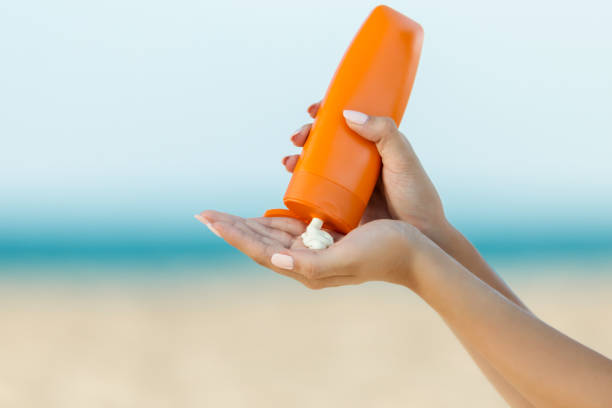
FAQ About Sunscreen

What should I consider when choosing a sunscreen for travel?
When choosing a sunscreen for travel, there are several factors to consider to ensure you have the right protection for your specific travel needs. Here's a checklist to help you select the best sunscreen for your travel adventures:
- Broad-Spectrum Protection: Opt for a sunscreen that provides broad-spectrum protection, offering defense against both UVA and UVB rays. This ensures comprehensive protection from the sun's harmful effects.
- High SPF: Choose a sunscreen with a Sun Protection Factor (SPF) of at least 30 or higher. A higher SPF provides increased protection against sunburn and helps to extend the time you can spend outdoors without reapplication.
- Water-Resistance: If your travel involves water activities or excessive sweating, consider a water-resistant sunscreen. Water-resistant formulas stay on the skin longer during water exposure, offering better protection.
- Travel Size and Packaging: Check if the sunscreen is available in travel-friendly sizes, adhering to airline carry-on restrictions. Consider compact packaging and flip-top caps to avoid spills and leaks during travel.
- Lightweight and Non-Greasy: Look for a sunscreen with a lightweight and non-greasy texture, especially if you are traveling to hot and humid destinations. Non-greasy formulas are more comfortable to wear in such climates.
- Mineral or Chemical: Decide between mineral-based (zinc oxide or titanium dioxide) or chemical sunscreens based on your skin type and preferences. Mineral sunscreens work as a physical barrier and may be better for sensitive skin.
- Reapplication Convenience: Ensure that the sunscreen is easy to reapply, even over makeup or while on the go. Consider using spray or powder sunscreens for convenient touch-ups.
- Environmental Considerations: If you plan to swim in natural water bodies, such as oceans or coral reefs, opt for reef-safe sunscreens that are free from oxybenzone and octinoxate to minimize environmental impact.
- Suitable for Skin Type: Choose a sunscreen that is suitable for your skin type, whether you have sensitive, oily, dry, or acne-prone skin. Look for non-comedogenic and hypoallergenic options if needed.
- TSA Regulations: Be mindful of Transportation Security Administration (TSA) regulations if you are traveling by air. Ensure the sunscreen meets the current liquid carry-on restrictions.
- Expiration Date: Check the expiration date on the sunscreen before traveling. Expired sunscreen may not provide adequate protection.
- Health and Safety Regulations: Research the health and safety regulations of your travel destination, as some countries may have specific rules regarding sunscreen ingredients.
